 |
Home > Island People > Beliefs: The Sacred in Nature
 |
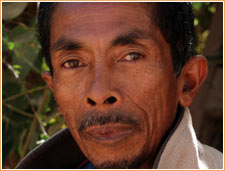 |
 |
| Ramilisonina studies Malagasy myths and legends. |
|
When Europeans arrived in the 17th century, they found that the Malagasy practiced a distinctive form of ancestor worship. The natives believed that the world was haunted by spirits of the dead. Many plants and animals were also considered sacred and were protected by taboos. The sighting of some animals foretold ill fortune.
Today, nearly half of the island's people are either Catholic or Protestant. However, even among the island's Christians, native religious beliefs have an impact on daily life. Many Malagasy continue to believe that their ancestors play an important part in controlling fate. Traditional beliefs and practices live on through the observance of rules determining proper behavior. Failing to follow the rules or engaging in prohibited, or "fady," behavior offends the ancestors and invites trouble.

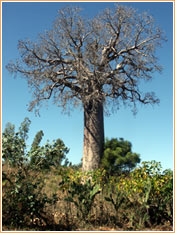 |
 |
Ramilisonina (he only has one name and goes by the nickname Ramily) is a retired professor of archaeology. He specializes in Malagasy myths and legends. He says that many natural objects, including certain trees, are considered sacred. The baobab tree, called "the forest mother, is one example.
 |
 |
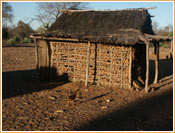 |
 |
The Ravenala tree, also known as the "traveler's tree" because thirsty wayfarers can get a drink by slashing its trunk, is among the many trees and other natural objects Malagasy people consider sacred. Ramilisonina explains why this tree is so special.
 |
 |
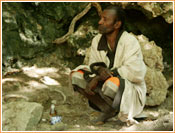 |
 |
Many people in Madagascar believe it is forbidden or "fady" to touch such things without special rituals asking one of many spirits, such as that of Vazimba, for permission. Sometimes the rituals involve drinking local rum or sacrificing an animal. Ramilisonina explains.
 |
 |
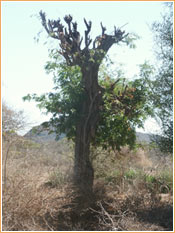 |
 |
The tamarind, or kily, is one of the many trees the Malagasy consider sacred. But, according to
Ramilisonina, the exalted status of the tamarind does not prevent it from having its fruit harvested
or for it from
being cut down. To the contrary, its special status is partly a result of its great utility.
 |
 |
|
 |

